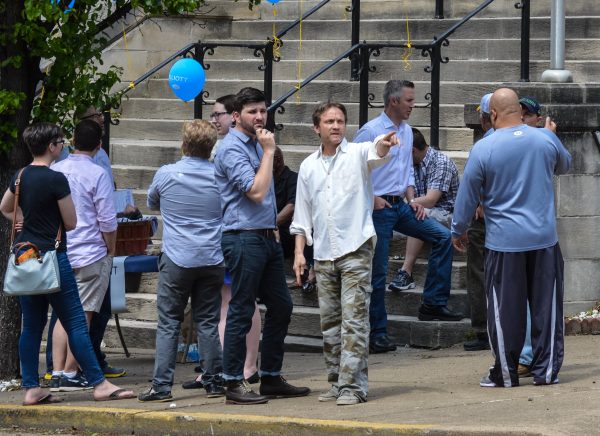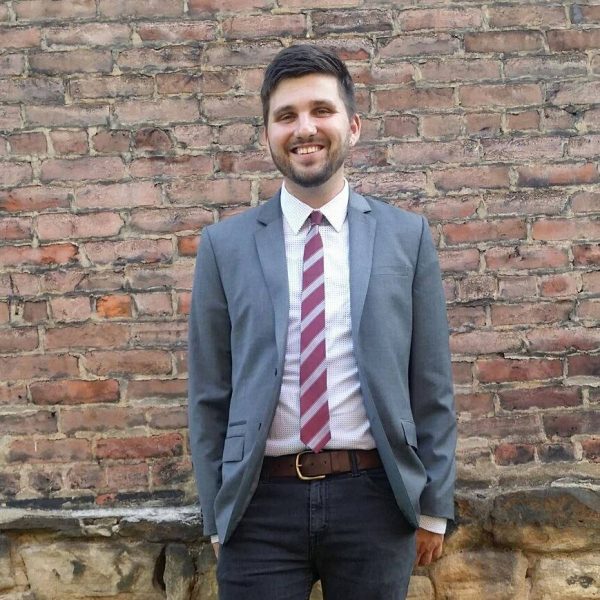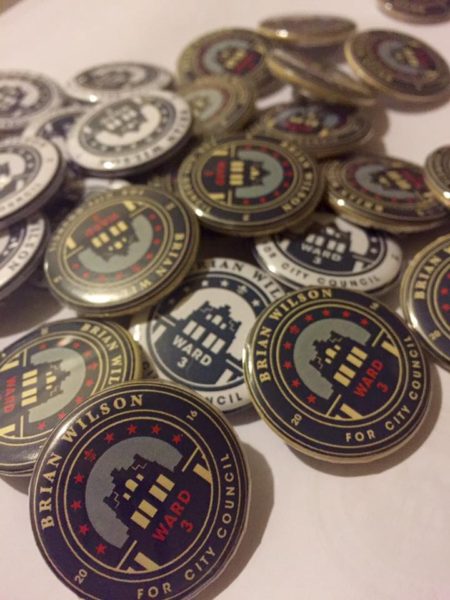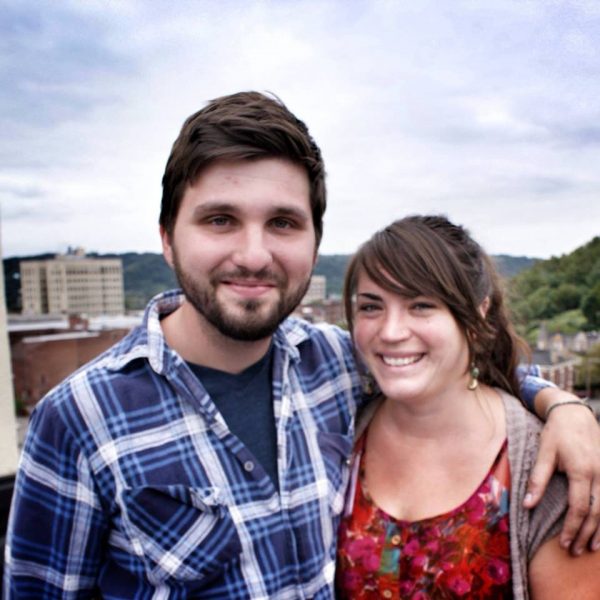There was a point in time when Brian Wilson tried to count the people he was confident would vote for him to be the next council representative for Wheeling’s third ward.
An inexact science, yes, but Wilson was nervous. He was running against three other men, including one who had been a candidate before and another who has been involved with organized labor in the Wheeling area for several years.
“I really didn’t know what to expect, and as Election Day got closer and closer, I started to evaluate everything,” Wilson explained. “I wanted to make sure I did everything I could to let the people in Ward 3 know what I stood for as a candidate. Now I know that I did.”
Wilson won the balloting in Ward 3 by 96 votes over Chris Hamm (312-216). Tom Conner collected 144 votes, and two-time candidate Chris Dean garnered 89.

“I sure tried my best to meet as many people as possible,” Wilson explained. “I knocked on doors, I’ve attended the East Wheeling Crime Watch Meeting for the last two year, and I have gone to the meeting for the South Wheeling Preservation Alliance for the past year. The only reason I didn’t attend similar meetings in Mozart or Center Wheeling is that they do not have similar groups in those neighborhoods.
“I would like to see those areas form similar groups because those meetings offer a chance for residents to take ownership and feel as if they have some control. They also get to feel like their opinions matter,” he continued. “What better place could there be to talk about your neighborhood and the issues you may have than with a group of your neighbors?”
Wilson collected support, he believes, because of his stance on property rights, and he also heard from many future constituents that what Wheeling needs most is to be marketed as an area with opportunities for small business owners.
“I received a lot of feedback from the ward’s residents about my willingness to defend them against anything connected to eminent domain because there are people who still have those fears,” Wilson said. “I can’t tell you how many times people told me that what Wheeling needs is new blood with new ideas and that we need to retain our young people.

“I couldn’t agree more with those people,” he said. “I think the most important thing is to market our city as fertile business ground and let them know that someone could show up and buy an empty storefront for almost no money at all. Because the property values and taxes are so different here, someone from Pittsburgh could come down here and really do well. We need to look at this city as a blank canvas instead of as a city with challenges. There’s a lot of opportunity here now.”
Wilson also pledged cooperation during his campaign, and he feels that message resonated with Ward 3 voters.
“I think the fact that I was there in front of them after knocking on their door really convinced them that their issues would get attention,” Wilson said. “I gave them a business card with my name, my address, and my number, and that seemed to be enough for them. I told them that I’m an easy person to find, and I told them that if they needed me, all they had to do was to call me.”
Ward 3 includes East Wheeling, Center Wheeling, South Wheeling, and Mozart, and a few of those neighborhoods have possessed negative reputations in years past. Wilson explained that he confronted that mindset during his campaign, and he encouraged residents to refute the rumor mill.

“During the campaign I found myself using the word ‘stigma’ a lot, and that’s because I think the best way to combat those stigmas about some of the neighborhoods in the third ward is to empower the residents of the ward,” Wilson said. “Those kinds of community meetings also offer a chance for some pride for where they live. and that way, I believe, it will allow them to stick up for their neighborhood more than they may do today.
“I hope that the people living in the third ward will begin to educate others more about where they live. I hope they tell them that they love their neighborhood,” Wilson continued. “If more of that starts happening, then those stigmas will erase themselves.”
Wilson, whose full-time employment involves industrial and residential renovation and preservation, believes a plethora of opportunity for economic development now exists within the borders of Ward 3.
“It’s virtually impossible to look at the neighborhoods in Ward 3 and not see a potential for growth,” he insisted. “These are the neighborhoods that seem to be catching on again after years of being considered as burdens and eyesores. Finally, people are starting to see clearly that they are the best neighborhoods in Wheeling, in my opinion.

“I do think one of the biggest challenges will be to retain what we still have as far as the buildings in the ward. A lot of it had to be demolished, but we’ve lost so much more needlessly,” Wilson continued. “Buildings do fall down, and they do catch on fire, but now I hope we focus on retaining what’s worth keeping, and we have to keep the historic context of our neighborhoods. I would hate to see Center Wheeling and East Wheeling lose their historic district status.”
While visiting all corners of the ward, the councilman-elect identified what he considers the most critical issues in the third ward at this time.
“Throughout the ward we have a vacancy crisis, and we have a handful of property hoarders that are holding entire blocks of buildings hostage, and that means they are inhibiting any chance for growth in those areas,” Wilson reported. “I think that needs dealt with immediately. Right now, I’m not sure how that is accomplished, but I’ll do the work to figure it out because it’s something that’s not been addressed in the last 20 to 30 years.
“The city now has the vacant building registration program, and that’s been a good start to addressing this issue, but it’s not enforced very consistently,” he continued. “I do believe it’s as easy as looking at individual buildings and reviewing how long they’ve been vacant, when the last building permit was issued for them, and if anything of any substance to better these buildings in important ways has been performed,” he said. “I believe it’s as easy as finding out when the buildings were last invested in, or if they are just sitting vacant and left to rot, for whatever reason. If that’s the case, I believe it’s important to get the property into different hands so our neighborhoods can improve.”
(Cover photo by Steve Novotney)



